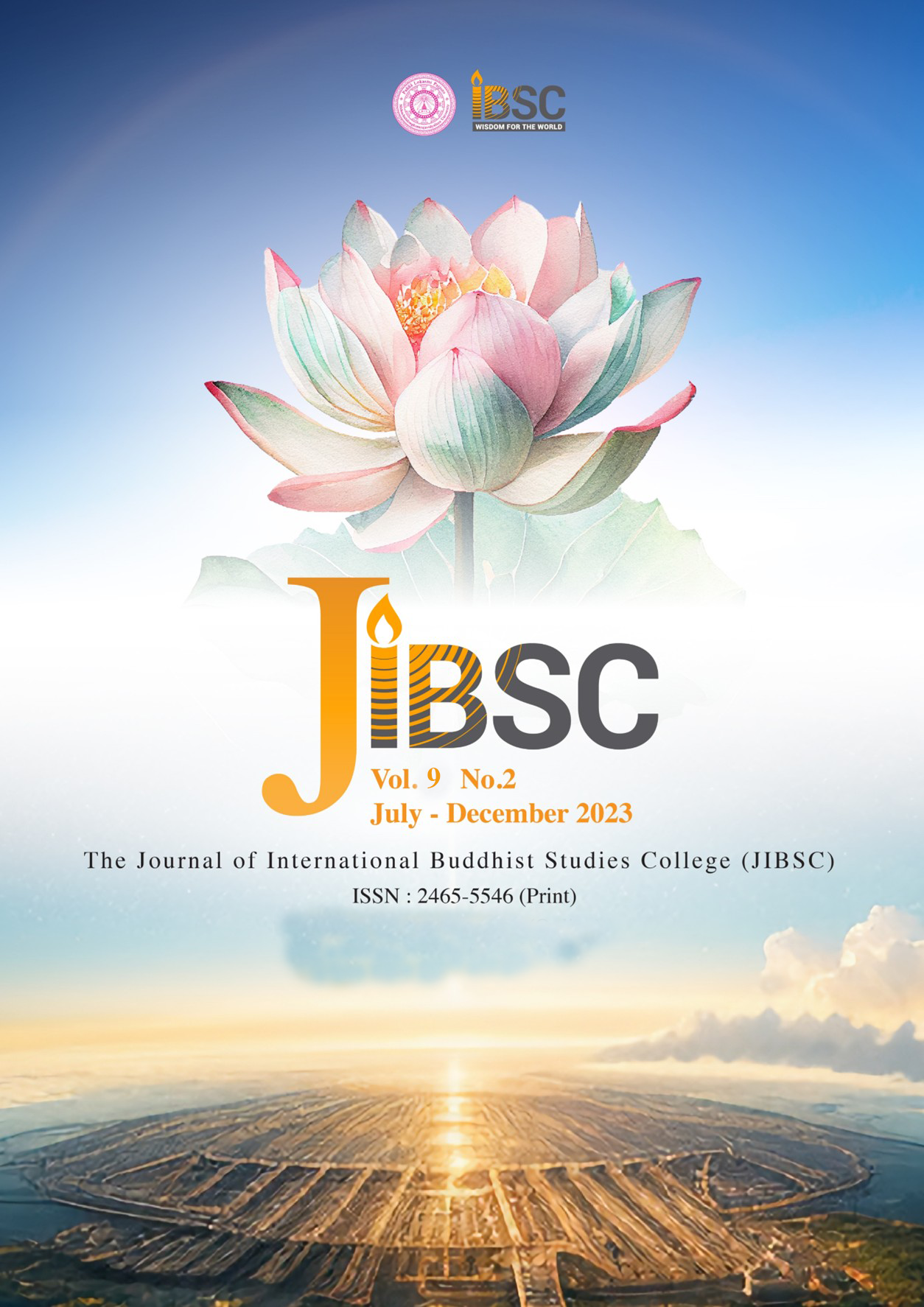A Human Development Model Based on Moral Attributes of Sotapanna in Buddhism
Main Article Content
Abstract
Nowadays people are living in the modern society under the pressure of competitions almost in every period of life, from education, career, social status to wealthy. People are self-centered (individualism) and self-interest (egoism) in order to response their desires, needs and pleasant feelings. According to Buddhist principle taṇhā (selfishness, desire, craving, greed) causes the roots of bad actions (akusala-mūla), which consists of greed (lobha), hatred (dosa) and delusion (moha). These three poisons not only lead an individual to think and act just for oneself, but also blind the one not to think and act for others. Taking these into account, the sotāpanna (stream-enterers) in Buddhism are people with benevolence, who are altruist and concern the benefits of the others. Regarding the integrated practice of the Threefold Training and the Noble Eightfold Path, it is the right way of becoming the first Noble Being in Buddhism like sotāpanna. Therefore, this article aims to explore significant moral attributes of sotāpanna and propose a human development model based on moral attributes of sotāpanna.
Article Details
The Journal of TCI is licensed under a Creative Commons Attribution-NonCommercial-NoDerivatives 4.0 International (CC BY-NC-ND 4.0) licence unless otherwise stated. Please read our Policies page for more information on Open Access, copyright and permissions.
References
Bhikkhu Bodhi. The noble eightfold path: The way to the end of suffering. Buddhist Publication Society, 2010.
Bushong, Theodore Mark. THE “VIA MYSTICA” AND MYSTICAL EXPERIENCE: A COMPARATIVE STUDY OF “THE CLOUD OF UNKNOWING” AND “THE PATH OF PURIFICATION (VISUDDHIMAGGA)” (BUDDHAGHOSA). Northwestern University, 1985.
Gethin, Rupert. The Foundations of Buddhism. Oxford University Press, 1998.
Harvey, Peter. An Introduction to Buddhist Ethics: Foundations, Values, and Issues. Cambridge University Press, 2000.
Keown, Damien. The nature of Buddhist ethics. springer, 2016.
Kornfield, Jack. The Wise Heart: A Guide to the Universal Teachings of Buddhist Psychology. Bantam, 2009.
P.A. Payutto (Prayudh Arayangkoon) Bhikkhu (Phra Brahmagunabhorn). Dictionary of Buddhism. 27th ed. Bangkok: Mahachulalongkornrajavidyalaya University Press, 2014.
P.A. Payutto (Prayudh Arayangkoon) Bhikkhu (Somdet Phra Buddhaghosacariya). Robin Philip Moore (trans.). Buddhadhamma: The Laws of Nature and Their Benefits to Life. 2nd ed. Bangkok: Buddhadhamma Foundation, 2018.
Saṃyutta Nīkāya [The connected Discourses of the Buddha]. Bhikkhu Bodhi (trans.). A New Translation of the Saṃyutta Nīkāya. vol 2. no. 47. Oxford: PTS, 2000.
Saṃyutta-nikāya. M. Léon Feer (ed.). vol 5. Oxford: PTS, 2008.


